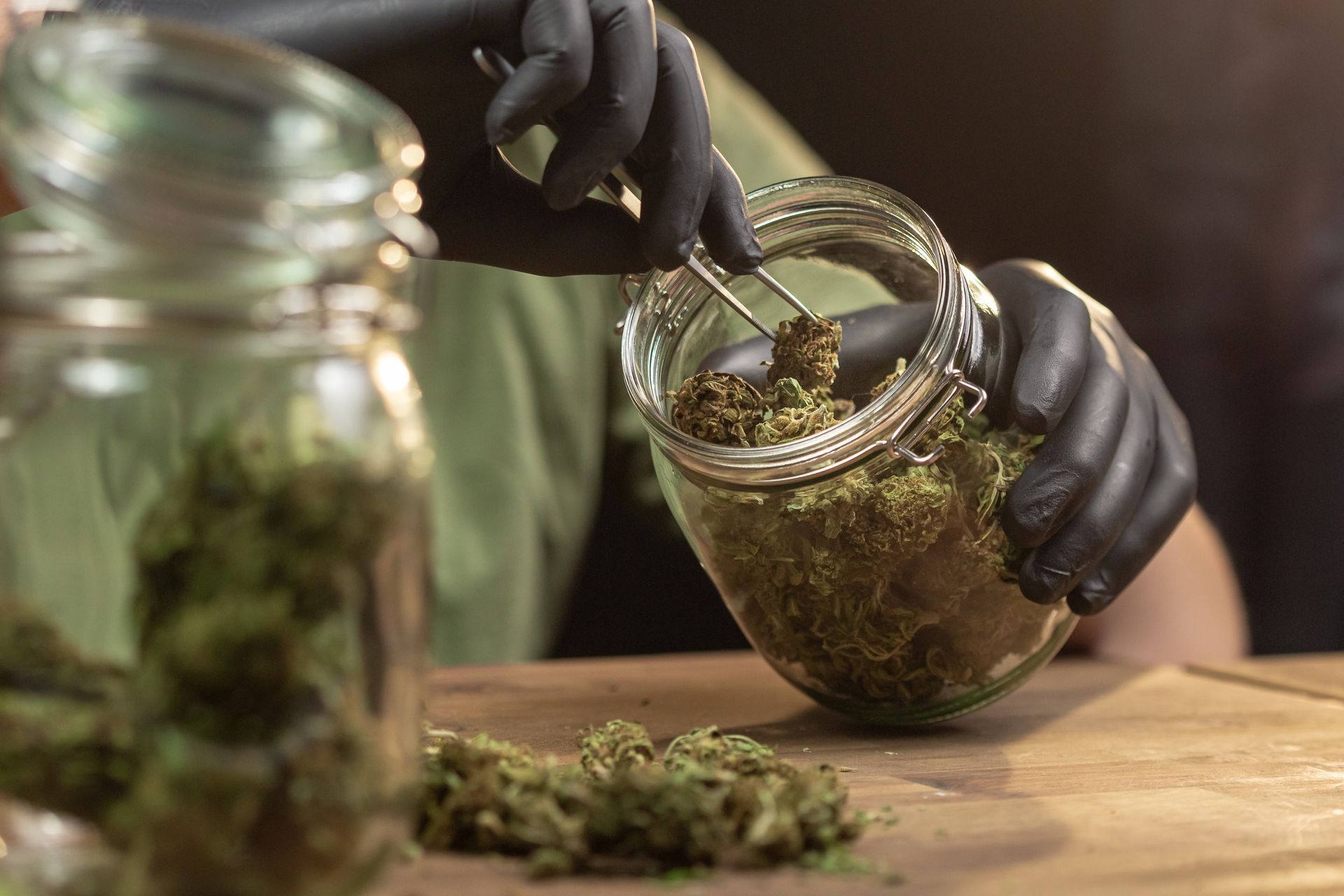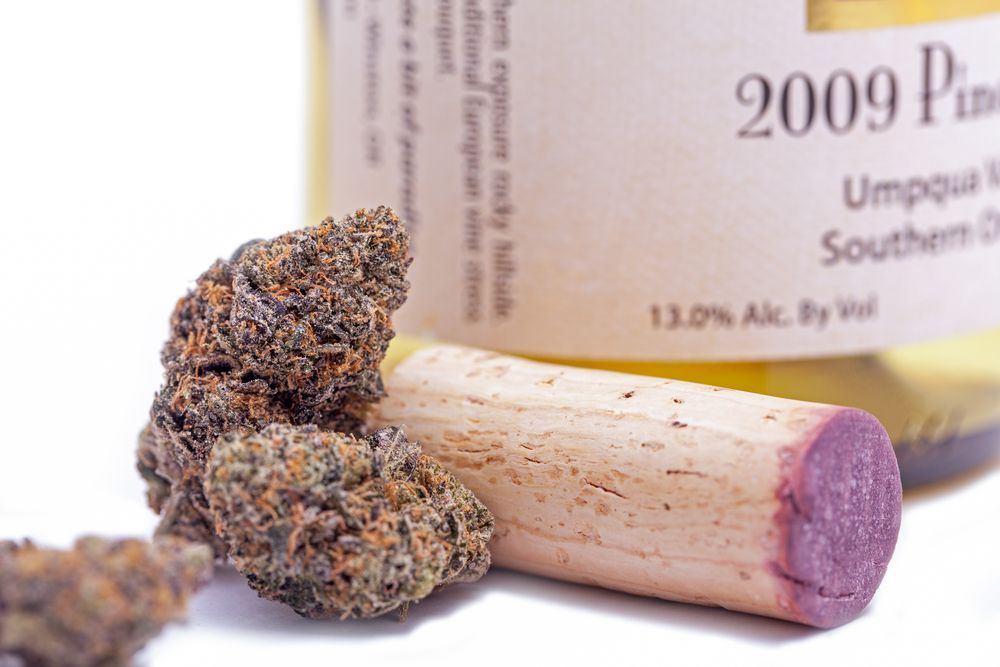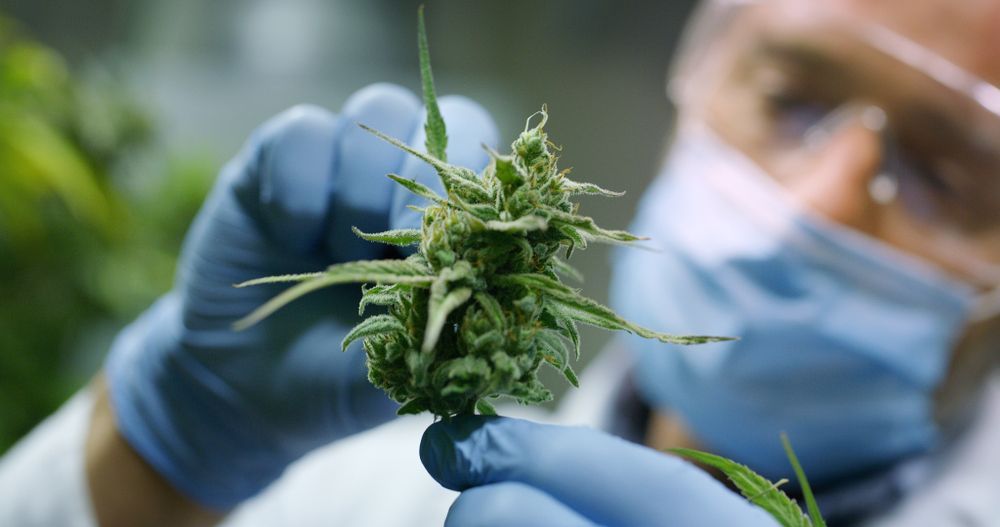Why You Might Want to Avoid Cannabis
Why You Might Want to Avoid Cannabis
…written by a cannabis delivery company in Portland, Oregon
Look, we’re a delivery company of premium cannabis, and we love it. We love weed, marijuana, ganja—whatever you want to call it. We love talking about and it sharing why we think it’s awesome, but we also made a promise to give you the information you need to make an informed decision about your consumption.
On the one hand, that means giving you the cannabinoid/terpene contents and telling you how a strain makes us feel. On the other hand, it means we also want you to know the potential downsides of smoking marijuana. As much as we wish we could tell you it’s 100% safe, no one has ever become addicted, and no one has ever experienced any adverse effects, that just isn’t the truth. Sometimes people have a bad time with cannabis. There are some real risks associated with cannabis use,—some people should avoid it entirely ,—and we’re going to walk you through everything you need to know.
Throughout all of this, we want to remind you that none of us at Pot Mates are doctors, so nothing we tell you should be construed as medical advice. We’ve done a lot of research to bring you reliable information, but the best person to talk to about whether to consume cannabis is your primary care provider, which is not Pot Mates.
People Who Should Avoid Cannabis
Under 25-year-olds
Kids shouldn’t use weed! It is so important that children avoid cannabis that every cannabis sale in the state of Oregon is legally required to include this notice. When cannabis extracts are infused into chocolates, cookies, sodas, and other treats, it’s easy for children to mistake them for unadulterated snacks and accidentally eat something that can make them sick. Symptoms can include disorientation, trouble walking or sitting up and difficulty breathing. Remember, we’re not doctors, so if your child ingests cannabis, call Poison Control at 800-222-1222 or visit PoisonHelp.org.
It’s not always an accident though. When children intentionally try marijuana products, it’s usually to emulate someone they know and look up to,—likely a family member or a close friend. If you’re someone a child looks up to and they know about your affinity for Mary Jane, take the initiative to educate them about the wisdom of waiting until they’re older to try it themselves. The negative effects of marijuana on mental health are greatest during development, particularly between the ages of 10 and 24. Make sure they know that marijuana is not what makes you cool. The socks you wear make you cool. These risks are higher the younger the person is, how frequently they use marijuana, and how much THC is in it. 1 These effects may include decreased IQ, attention deficits, poor academic achievement, suicide ideation, and an increased risk of schizophrenia. Keep your weed and all related paraphernalia in a locked or otherwise child-proof container.
There is also evidence that adolescents who consume high-potency concentrates like vape pens or dabs are at a higher risk for developing marijuana dependency 2 , which is actually a real thing we’ll discuss in the Personal Risks section below.
Pregnant People
Pregnant people should also avoid anything with THC. Babies whose mothers smoked weed while they were pregnant are more likely to be born premature or underweight and admitted to a neonatal intensive care unit. 3 Cannabinoids (and terpenoids, although these are less demonstrably harmful) are capable of passing through the placenta to the fetus.
This can contribute to developmental problems after birth as well. Although it is transferred in smaller quantities, babies can also absorb THC directly from breastmilk. THC enters breastmilk within twenty minutes and can be detected up to six days later, so it’s probably best to abstain from cannabis altogether while breastfeeding. 4
People with psychiatric disorders
If you have a personal or a family history of psychiatric disorders (i.e. schizophrenia, psychosis, mood disorders, or anxiety) then you may also want to avoid cannabis. Higher levels of cannabis use have been shown to increase the risk of psychotic episodes for people with a family history psychosis or schizophrenia. 5 Similarly, people with anxiety who use cannabis are likely to have more severe symptoms than those who don’t, and they struggle more to improve during treatment. 6 Many people who have an anxiety condition might use weed to calm them down, but research shows that may not actually be what’s happening.
Bipolar disorder is another risk factor for cannabis. Studies have shown that people who use cannabis can expect a higher number of both manic and depressive episodes and an earlier age of onset. 7
People with cardiovascular/cerebrovascular disease
People who have severe cardiovascular or cerebrovascular disease should probably not smoke weed. It can increase the incidence of occasional hypertension , fainting, tachycardia ,—even heart attacks and strokes. 8 These can constitute serious medical emergencies.
People with liver/renal disease
Similarly, people with severe liver diseases should avoid consuming marijuana because it has been shown to increase the risk and severity of steatosis, or fatty liver disease. 9
Pets
Please don’t give animals cannabis! A lot of research needs to be done to understand the effect it can have on other species’ endocannabinoid systems, but at least in dogs, marijuana has been shown to cause low blood pressure, dribbling urine, and low heart rate as well as stumbling or falling, which can result in serious injury for older canines. 10 If you think your pet may have ingested marijuana products, you can call the Pet Poison Hotline at 855-764-7661 or visit their page on marijuana here.
What Are the Personal Risks of Consuming Cannabis?
Cognitive Impairment
Cannabis directly impedes both your short-term memory (also called working memory) and your long-term memory (episodic memory). 11 This can have a negative effect on your hand-eye coordination, your reaction time, and your ability to remember both things that just happened and things you should remember from a while ago. 12 Short attention span is another side effect, making it hard to follow a single train of thought or focus on one thing at a time. This can have a negative effect on your hand-eye coordination, your reaction time, and…wait a minute, didn’t you just read that? You know what we are talking about here. Studies have shown that this impairment can last as many as twenty-four hours after using. 13
Motor vehicle accidents
Did you know people who use marijuana are 20–30% more likely to be involved in a motor vehicle accident than people who don’t? 14 That’s because THC can act as a central nervous system depressant. Foggy short-term memory makes it difficult to keep track of hazards, and unfocused attention drags down response time to sudden changes, like a car merging into your lane without signaling or a bicycle legally crossing an intersection.
This is also a good reason to avoid combining cannabis with alcohol or any other CNS-depressant medication, as these can compound the effect even further. 15 Short version: don’t drive high.
Mental Health
Many of these studies establish a correlation between cannabis use and a given outcome, be it birthweight, mental wellness, or psychomotor skills. These are correlations, meaning both cannabis and the given outcome were present at the same time, but that does not mean that marijuana caused those outcomes,—at least, not necessarily. People who use marijuana are more likely to be involved in an accident, but that could be the result of something else they also have in common. Without more research, we just can’t be sure.
There are significant correlations between heavy cannabis use and psychosis, specifically schizophrenia. 16 Does this mean that smoking pot causes schizophrenia, or that people with schizophrenia often try to self-medicate with marijuana? We don’t know for sure, but unless you’re participating in a study, you should probably avoid it if you or your family has a history of schizophrenia.
There are also strong correlations between adolescent use and the development of depression, anxiety, and other related mood disorders. 17 In fact, while some teenagers claim they are self-medicating to manage the symptoms of depression and anxiety, weed can often mimic the very symptoms they are trying to treat. This could mean that people with depression and anxiety are more likely to use cannabis,— correlation — or it could mean that cannabis causes people to experience depression and anxiety— causation.
Unfortunately, cannabis use has also been associated with an increase of suicidal ideation. 18 These thoughts are often intrusive and unwanted, but they are not unmanageable. If you find yourself preoccupied with your death, please talk to a friend or family member about your feelings. You can also call 800-273-8255 or visit suicidepreventionlifeline.org to talk through your thoughts, they have people who are always available.
Tolerance and Dependence
The more weed you smoke, the more you develop a tolerance for it, and thus the more that you need to smoke in order to feel the same level of subjective high. You inevitably end up increasing your THC consumption as your tolerance goes up, and this can add up to problems down the line. In addition to making your recreational experience incrementally more expensive, at least one study found that daily or near daily cannabis use can interfere with neurocognitive functions for several days—even after you’ve stopped being high. In other words, daily or near-daily use can leave you as impaired as if you had just smoked, even if you haven’t. 19
Tolerance can lead to a psychological and even physical dependence—also known as addiction. For the longest time, we thought people couldn’t become physically addicted to weed, but it turns out we were wrong. There are clear withdrawal symptoms that are immediately apparent within one to two days of quitting cannabis entirely. These symptoms include cravings, anxiety, irritability, headache, restlessness and decreased appetite or weight loss. 20 The first five days are the worst, but most of these symptoms resolve within one to two weeks. If you can get through the first week, the rest are pretty manageable.
There aren’t any drugs approved specifically for managing the symptoms of cannabis withdrawal, but there is other help available. If you think cannabis use is starting to interfere with your work or home life, you can call the Delphi Health Group Drug Recovery Hotline at 888-979-9625 , or visit them here.
Conclusion
All this isn’t to say that marijuana is bad , we just want you to know there are risks. Compared to the incredible list of potential harms associated with other drugs such as tobacco or alcohol, cannabis does very little damage. It hasn’t been shown to cause lung cancer 21 , it’s unlikely to be a gateway drug 22 , and it won’t destroy your liver like long-term alcohol consumption. 23 But we would be lying if we told you it’s harmless, and now you know what to watch out for to be a more informed, responsible cannabis user. The best kind.
Roughly 50% of people in the United States expresses curiosity about cannabis, but only about 20% of people actually partake. It is perfectly normal to be curious about marijuana, and it is also perfectly normal among the 80% of people that do not participate. You should never feel pressured to consume cannabis.
However, if you do decide to consume cannabis, we wrote an article about how to do so while staying safe.
- Long-term consequences of adolescent cannabinoid exposure in adult psychopathology
 ︎
︎
- Associations Between Butane Hash Oil Use and Cannabis-Related Problems
 ︎
︎
- Prenatal Exposure to Cannabis and Maternal and Child Health Outcomes: A Systematic Review and Meta-Analysis
 ︎
︎
- Marijuana Use by Breastfeeding Mothers and Cannabinoid Concentrations in Breast Milk
 ︎
︎
- Meta-analysis of the Association Between the Level of Cannabis Use and Risk of Psychosis
 ︎
︎
- Association of Cannabis With Long-Term Clinical Symptoms in Anxiety and Mood Disorders: A Systematic Review of Prospective Studies
 ︎
︎
- Bipolar Disorder and Co-Occurring Cannabis Use Disorders: Characteristics, Co-Morbidities and Clinical Correlates
 ︎
︎
- Cannabis Use: Signal of Increasing Risk of Serious Cardiovascular Disorders
 ︎
︎
- Role of Cannabinoids in the Development of Fatty Liver (Steatosis)
 ︎
︎
- Marijuana, Cannabidiol & Dogs
 ︎
︎
- Effects of marijuana on neurophysiological signals of working and episodic memory
 ︎
︎
- Effects of marijuana on neurophysiological signals of working and episodic memory
 ︎
︎
- The Health Effects of Cannabis and Cannabinoids
 ︎
︎
- The Effects of Cannabis Intoxication on Motor Vehicle Collision Revisited and Revised
 ︎
︎
- The Effect of Alcohol, THC and Their Combination on Perceived Effects, Willingness to Drive and Performance of Driving and Non-Driving Tasks
 ︎
︎
- Meta-analysis of the Association Between the Level of Cannabis Use and Risk of Psychosis
 ︎
︎
- Association of Cannabis With Long-Term Clinical Symptoms in Anxiety and Mood Disorders: A Systematic Review of Prospective Studies
 ︎
︎
- Bipolar Disorder and Co-Occurring Cannabis Use Disorders: Characteristics, Co-Morbidities and Clinical Correlates
 ︎
︎
- Cannabis and tolerance: acute drug impairment as a function of cannabis use history
 ︎
︎
- Abstinence Phenomena of Chronic Cannabis-Addicts Prospectively Monitored During Controlled Inpatient Detoxification: Cannabis Withdrawal Syndrome and Its Correlation With delta-9-tetrahydrocannabinol and -Metabolites in Serum
 ︎
︎
- Cannabis Smoking and Lung Cancer Risk: Pooled Analysis in the International Lung Cancer Consortium
 ︎
︎
- Cannabis Smoking and Lung Cancer Risk: Pooled Analysis in the International Lung Cancer Consortium
 ︎
︎
- Health Risks And Benefits Of Alcohol Consumption
 ︎
︎





